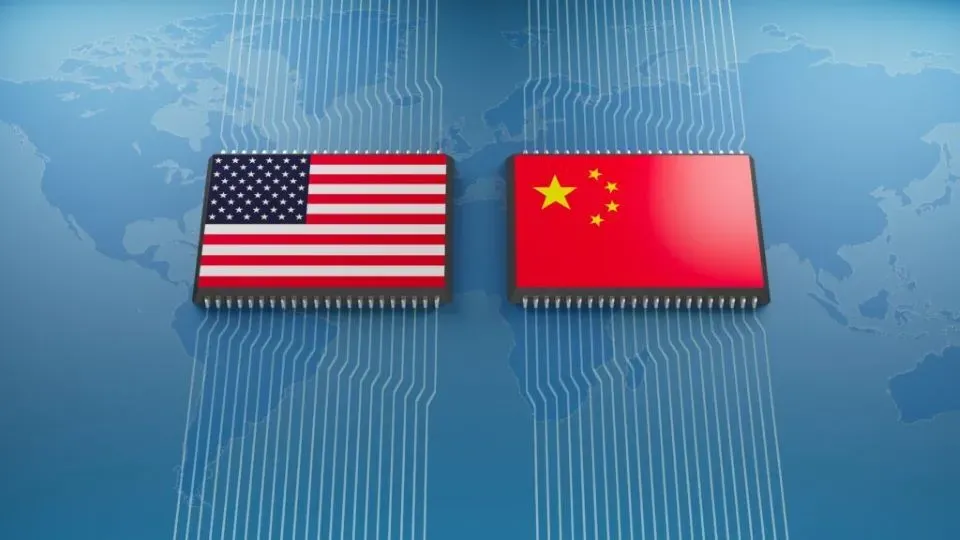The US-China trade war has reached a boiling point as tensions escalate over tariffs, export controls, and antitrust investigations. Recently, China launched an antitrust investigation against Google, a move seen as a direct response to the Trump administration’s decision to impose a 10 percent tax on Chinese imports. This conflict has not only strained diplomatic relations but also led to significant economic repercussions on both sides. In retaliation, China has enacted its own tariffs on American products, ranging from coal to automobiles, complicating the already intricate trade landscape. As the stakes continue to rise, the implications of this trade war extend beyond immediate economic impacts, affecting global supply chains and technological advancements, particularly in sectors like semiconductors and telecommunications.
The ongoing trade dispute between the United States and China, often referred to as the economic standoff, has significant ramifications for international trade dynamics. This confrontation has sparked a series of retaliatory measures, including the controversial tariffs imposed by both nations. As China embarks on investigations into foreign corporations like Google, the atmosphere of distrust intensifies, impacting global markets and technology sectors. Moreover, China’s strategic export controls and retaliatory tariffs are reshaping the landscape for American businesses operating in China. The ramifications of this economic clash not only challenge trade relations but also highlight the broader issues of protectionism and competition in the global marketplace.
Understanding the US-China Trade War
The US-China trade war has escalated dramatically over the past few years, marked by a series of tariffs and economic sanctions initiated by the United States against China. This conflict has profound implications for global trade dynamics, as both nations are economic powerhouses. The initial phases of the trade war saw the Trump administration imposing significant tariffs on Chinese goods, aiming to protect American industries and reduce the trade deficit. In response, China retaliated with its own tariffs, creating a cycle of economic measures that has affected markets worldwide.
As the trade war continues, various sectors are feeling the pressure. Companies reliant on Chinese manufacturing are facing increased costs due to tariffs, leading to higher prices for consumers. Furthermore, the trade war has prompted companies to rethink their supply chains and explore alternatives outside of China. This ongoing situation not only impacts trade relations but also raises concerns about long-term economic stability in both nations.
Frequently Asked Questions
What is the significance of the US-China trade war in the context of China’s antitrust investigation against Google?
The US-China trade war has heightened tensions, leading to China’s antitrust investigation into Google. This probe raises concerns about foreign companies operating in China, particularly as the US imposes tariffs on Chinese goods. Such actions reflect the broader economic conflict and influence how China regulates foreign tech firms.
How do Google tariffs impact the US-China trade war dynamics?
Google tariffs are part of the broader US-China trade war, where the US has imposed additional tariffs on Chinese imports. These tariffs create retaliatory measures from China, such as the antitrust investigation against Google, highlighting the interconnectedness of trade policies and tech regulations in this economic conflict.
What role do China export controls play in the US-China trade war?
China export controls are a strategic response in the US-China trade war, aimed at countering US tariffs and restrictions. By limiting the export of critical materials, China seeks to leverage its resources in negotiations, impacting industries and technologies that rely on these exports.
How does Huawei’s HarmonyOS relate to the US-China trade war?
Huawei’s HarmonyOS represents a significant move away from US technology amid the trade war. As Huawei seeks to reduce reliance on Google’s Android operating system, it showcases China’s efforts to develop independent technologies and maintain competitiveness in the face of US sanctions and tariffs.
What are the implications of China’s retaliation against US tariffs during the US-China trade war?
China’s retaliation against US tariffs, including imposing its own tariffs on American products, escalates the US-China trade war. These retaliatory measures reflect China’s commitment to protect its economy and signal to the US that continued tariffs will provoke further economic responses.
| Key Points |
|---|
| China initiates an antitrust investigation against Google as part of the US-China trade war. |
| The investigation follows the US imposing a 10% import tax on Chinese goods. |
| Google’s market influence in China is limited as Google Search was banned in 2010. |
| Huawei has launched HarmonyOS NEXT to reduce reliance on Google’s Android OS. |
| China retaliated with tariffs on US products, including coal, natural gas, and automobiles. |
| China has also restricted the export of key raw materials used in technology and military applications. |
| Chinese officials criticize US tariffs as violations of WTO rules and call for cooperation. |
Summary
The US-China trade war has escalated significantly with China’s recent actions against Google and the imposition of new tariffs. As both nations engage in retaliatory measures, the impact on global trade dynamics continues to unfold, highlighting the complexities of economic relations. With China’s antitrust investigation into Google and its restrictions on raw material exports, the trade conflict is evolving, affecting various industries and international cooperation.










